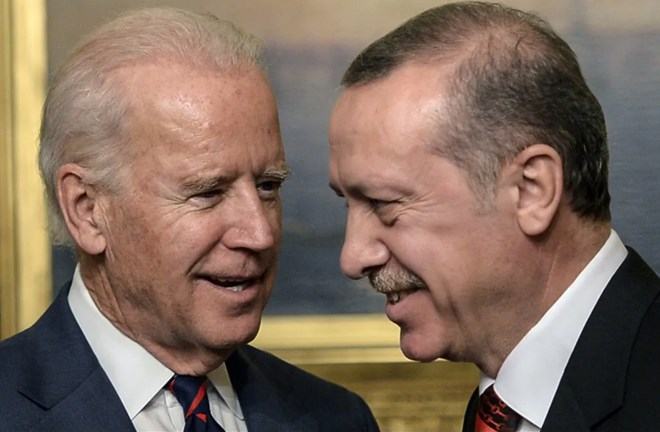Asia Times
Tuesday January 18, 2022
Being a “swing state” may have tactical advantages, but when life gets tough and the tough get going, there could be consequences. Turkey faced such a moment of truth 100 years ago. It faces a similar predicament today.
At a meeting on Thursday in Ankara with the European Union ambassadors, Turkish President Recep Tayyip Erdogan called for bold action in developing relations between the two sides in 2022. He said full membership of the EU remains Turkey’s strategic priority and it is “in our common interest to act with a long-term strategic perspective rather than prejudices or fears.”
According to Erdogan, Turkey-EU cooperation is vital and without Turkey’s “extraordinary efforts, Syria and Europe would have faced a different landscape.”
Ankara has convinced itself that Washington is keen to revive its problematic relationship with Turkey, since, as a commentary in the pro-government Sabah newspaper noted this week, “After all, at this very moment, the position that Turkey will take in the confrontation between Russia, the NATO alliance and the United States is more vital than ever. As a proven and indispensable member of NATO, Turkey is an important strategic partner for both sides.”
Expectations are high in Ankara after reports appeared in the Greek media this week that Washington has had a rethink on the so-called EastMed project, a 1,900-kilometer subsea pipeline designed to supply Europe with natural gas from the Eastern Mediterranean.
To recap, Greece, Cyprus and Israel signed an agreement in 2020 for the construction of the pipeline to deliver natural gas from their gas fields in the Eastern Mediterranean to Europe by 2025. The project was expected initially to carry 10 billion cubic meters of gas a year to Europe.
The 6 billion euro (US$6.85 billion) project had robust US backing and a final investment decision was expected this year, but in a statement on Sunday, the US State Department said it no longer supported the project, since Washington was shifting its focus to electricity interconnectors that can support both gas and renewable energy sources.
The statement said: “We remain committed to physically interconnecting East Med energy to Europe. We support projects such as the planned EuroAfrica interconnector from Egypt to Crete and the Greek mainland, and the proposed EuroAsia interconnector to link the Israeli, Cypriot and European electricity grids.”
US backing is crucial for the project’s viability and Turkey is inclined to read political meaning into Washington’s U-turn. Ankara had strongly opposed the pipeline’s route through disputed maritime territories claimed by both Turkey and Greece.
This is a major political decision by Washington, which knew that Israel had hoped to earn huge income out of exporting gas to Europe from its massive Leviathan and Tamar fields.